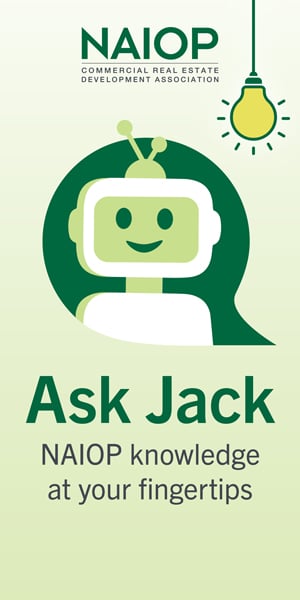Private Equity Finance and Securities Compliance for Real Estate Developers

Developers and property owners must understand the risks involved in recruiting passive investors.
ANY REAL ESTATE development transaction requires many moving parts. Raising capital is one of the most important aspects of the transaction. Without it, most deals would not proceed. But negotiating the transaction and inking the deal with potential investors does not end when the funding has closed. And, more often than not, the last thing on a developer’s mind is compliance with securities laws.
Securities Compliance
Many developers and owners are unaware that selling even a portion of a real estate project in a tenancy in common (TIC) or joint venture (JV) structure may trigger securities compliance. Interests in any JV entity are generally defined under the statute as a de facto security. And although the law was previously considered a gray area for TIC interests, the U.S. Supreme Court unequivocally answered the question in ruling that an undivided interest in a TIC is also within the definition of “security” under the Securities Act of 1933.
Developers face two potential pitfalls where securities compliance is triggered: 1) registration of the securities themselves and 2) sale of the securities by an unauthorized person. Under the Securities Act of 1933, any offer to sell securities must either be registered with the Securities and Exchange Commission (SEC) or meet an exemption. Regulation D of the Securities Act contains three rules providing exemptions from the registration requirements, allowing companies to offer and sell securities without registering them with the SEC — Rules 504, 505 and 506.
Filing Notices and Selling Interests
Most issuances for developers are exempt from registration, provided the offerings are limited in nature. The regulations provide a safe harbor for issuers, or sponsors, where they may file the requisite paperwork setting forth the applicable limited offering exemption with the SEC and state regulators.
Failure to file such notices could result in the issuer being barred from qualifying for any Regulation D exemption in the future. Rule 506, in particular, includes the so-called “penalty box” binding the founders to the disqualification as well as the company. Developers acting as sponsors should always review pertinent federal and state laws before any kind of issuance to determine if an applicable exemption is available.
The very act of selling the interests in such projects may also trigger compliance with securities laws. Any person engaged in the business of buying and selling securities for their own account through a broker or otherwise is considered a broker-dealer requiring registration with the SEC, subject to certain exemptions. This catch-all definition would include many, if not all, developers who act as sponsors seeking to sell interests in any portion of their projects.
To determine if the broker-dealer must register, the SEC analyzes the activities that an entity, through its employees, performs and how it participates in securities transactions.
Issuer Exemption
Some issuers rely on the so-called issuer exemption to conduct sales activities without their personnel being required to register as brokers or dealers. The rule provides a nonexclusive safe harbor for “associated person(s)” of the issuer (i.e., employees, partners, officers and directors) who sell interests in the projects, if they meet certain conditions.
To qualify for safe harbor, these individuals cannot receive compensation on the basis of the success of the transactions. Compensation that is contingent on a securities sale or that is based on a percentage of investment is viewed by the securities regulators as a commission. Bonuses paid according to the amount of equity raised, for example, would likely also fall within the definition of sales-based compensation.
Forms of compensation that may not be viewed as commissions, depending on all the facts and circumstances, may include 1) professional fees based on hourly billing rates or fixed fees, 2) nontransaction-based consulting fees, and 3) nontransaction-based due diligence fees or expense reimbursements. In addition to the compensatory element, the associated person’s sale activities must be passive and fall in one of three categories.
Raising Capital
Taken as a whole, the issuer exemption is clearly intended to provide a means for a smaller developer to raise capital for a one-off transaction. The exemption is not meant to provide a vehicle for developers to regularly sell portions of their own projects, even if the developers meet the letter of the exemption requirements. The SEC could take a substance-over-form position, attacking developers who form separate and distinct entities for each individual deal. Courts may also uphold a disgruntled investor’s suit for a right of rescission, which allows the investor to receive all of the original investment back plus interest. This remedy is particularly onerous and has widespread implications should a downturn in the economy affect real estate, as it did in the global recession that began in 2007.
Developers should procure legal advice before raising private equity for every transaction to ensure compliance with securities laws. Exemptions are available to the cautious developer and sponsor, but they are tedious, and the filings that are required must be made within very specific time constraints. Careful planning is required to successfully avoid SEC enforcement actions, which could include fines, penalties and criminal prosecution or private rights of rescission.
Suzanne Mulvihill, managing partner, Haight Brown & Bonesteel’s Sacramento office, and leader of the firm’s transactional practice group






